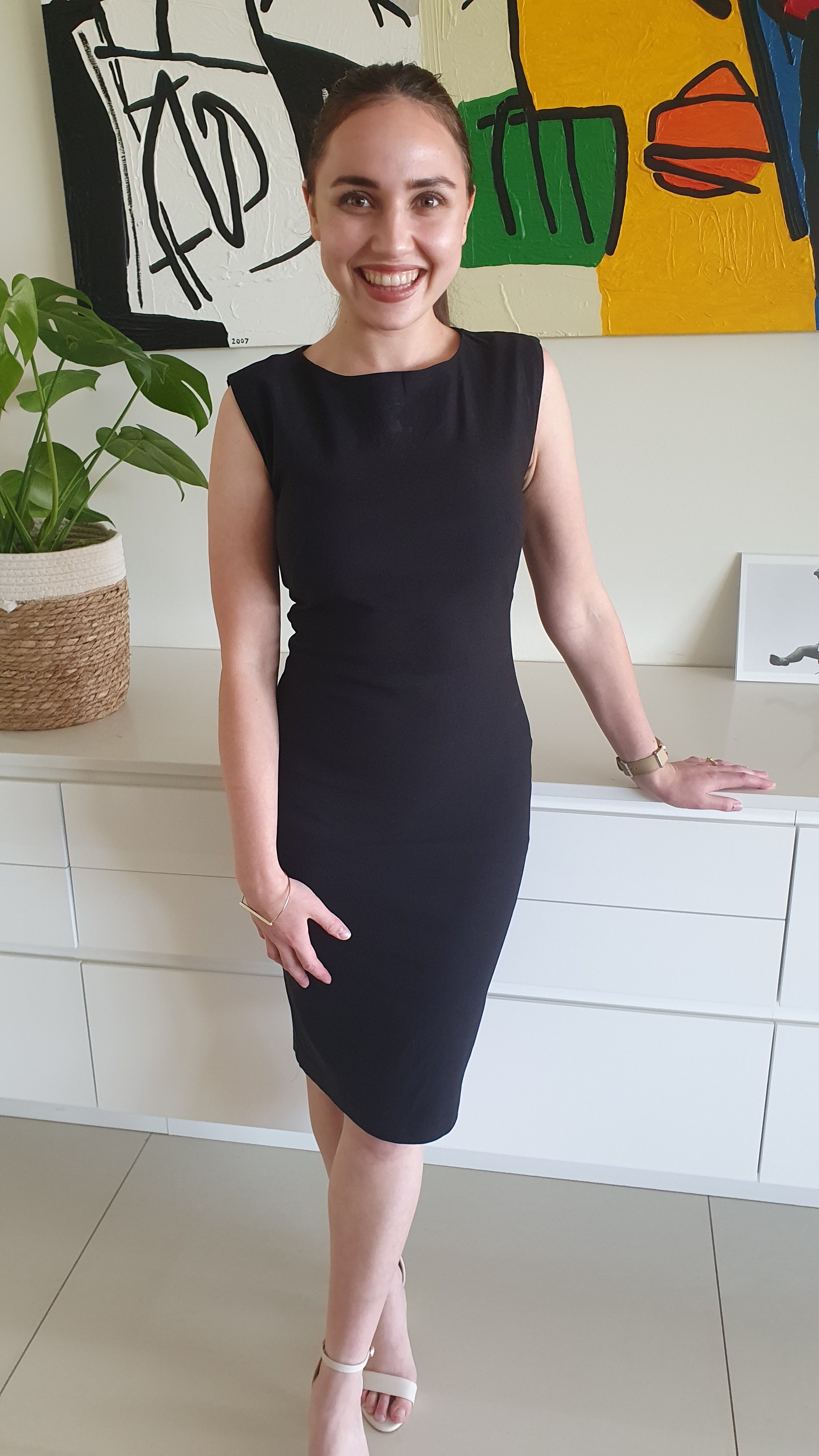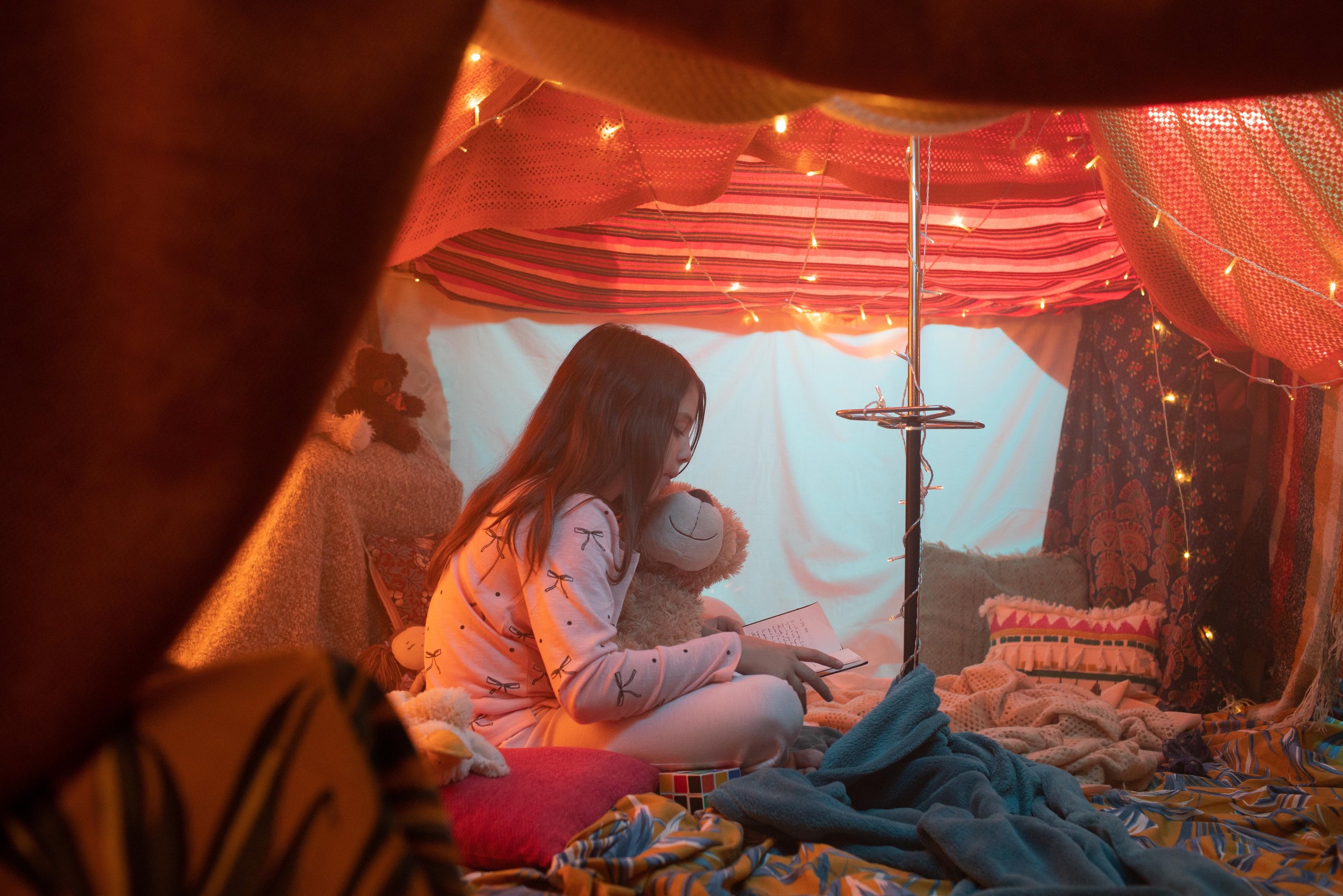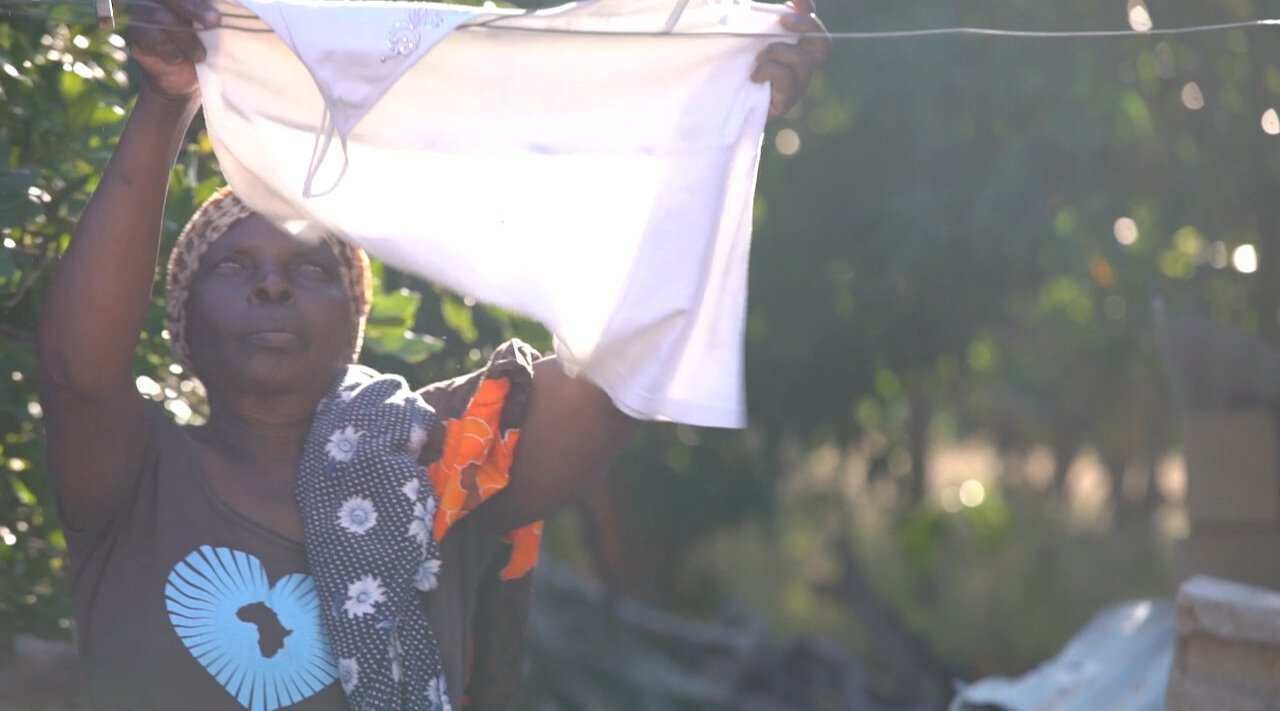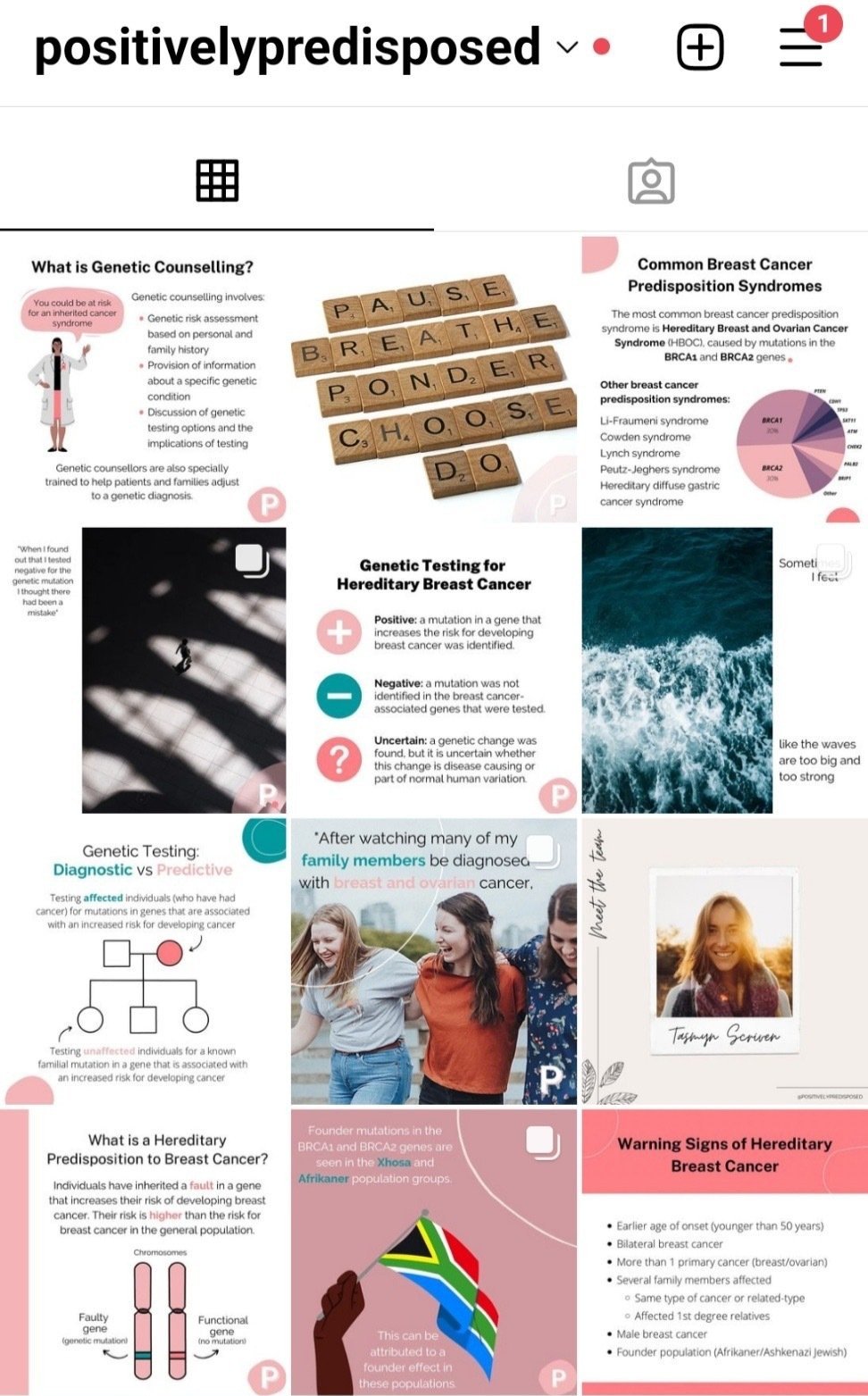Artist feature: Gabriella Blumberg
Gabriella is a filmmaker and producer from Johannesburg, South Africa. Her films feature stories, both her own and of those she feels connected with. We sat down with Gabi to talk about her journey into filmmaking and as a ‘previvor’ of hereditary breast and ovarian cancer mutations.
A previvor is an individual with a genetic mutation or a strong family history that puts them at higher risk of developing cancer. Previvors may choose to take risk-reducing steps such as increased screening or surgery.
Gabriella Blumberg
Image credit: Gabriella Blumberg
Micah: Where did you grow up and what was your childhood like?
Gabriella: I grew up in Johannesburg and lived in the same house my whole life. But I grew up in a very creative home; my mom was an architect and is now an artist, while my dad was a lawyer who was always playing instruments, reading books, and sharing films. As kids, my sisters and I loved to dress-up and perform.
Within my family, we were always aware of a maternal genetic mutation: BRCA1. When I was 13 years old my mom got breast cancer for the first time, and although I was young, there was open communication and dialogue. My parents were able to navigate the space with us [Gabi and her sisters] that encouraged us to ask questions so that the unknown became not only known, but manageable.
What first drew you to filmmaking and producing?
I studied at the University of Witwatersrand (in Johannesburg) majoring in film and television. At university, there was a focus on academic knowledge and critical thinking around our own identities and how this influences the subjects of our films. After that, I went to the Met Film School (in London) where I completed my master’s in directing.
While in London, I did my first campaign on breast health, working with a non-profit organisation called Befriend Your Boobs (BYB). During this time, I also made a short experimental film that weaved together poems written by my grandmother, my mother, and myself, reflecting on the health journeys each of us have had.
How do you identify and what influence does this have on your films?
I would say that I identify as an Ashkenazi Jewish female. I am also a previvor for a genetic disposition to breast cancer. My identity and genetic tapestry have been important for my work as I explore these topics closely both through film and through social media platforms.
What process do you go through to find your motivation for the films that you create?
I’ve been fortunate in my career to pursue topics that I think are important. More recently, I’ve connected with Jordy Sank, a South African Director. Together we’ve made a film called I Am Here about Holocaust survivor, Ella Blumenthal. She has a truly remarkable story, but more powerful than her story is her magnetic energy and unshakeable positivity. The film has won a number of awards. For me, it reaffirms that regardless of one’s history, people resonate with Ella as she imparts a deeply positive appreciation for life.
Two of your films Inheritance and Near Not Far relate to breast cancer but in very different ways. Can you briefly describe them and what inspired each film?
Left to right: Still from Inheritance, Still from Near Not Far
Image credit: Gabriella Blumberg
Inheritance was my master’s film project. It’s a fictional short film that deals with someone deciding whether they should go for genetic testing having found out about their genetic tapestry. It conveys nuanced feelings about contemplating the future—either as a carrier or as a non-carrier. It also depicts how we inherit qualities of resilience, hope, and bravery from previous generations—not just a faulty gene.
Near Not Far was the first project I did when I returned to South Africa. I was privileged to connect with the Breast Health Foundation on a programme in which 12 women from a rural area were brought to a hospital in Johannesburg to receive breast cancer treatment. This film has since been used to advocate for change in healthcare and create centers that are ‘near not far’.
How is your own health journey reflected in your films?
It’s interesting when you look at the different generations [of my family]. During my grandmother’s generation, there wasn’t a lot known about mutations and genetic testing. For my mother’s generation she was able to go for genetic testing and the presence of the gene meant she went for regular checks, but preventative surgeries were extreme during this time. My mother’s breast cancer was diagnosed, and she received treatment.
In my generation, there is far more information and access to knowledge, but more impressively, the unashamed sharing of knowledge. I went for genetic testing when I was 18 and found out that I have the BRCA1 mutation. Testing comes with numerous questions and decisions, like: Should you have risk-reducing surgeries (like mastectomies and ovariectomy)? When is the right time to have them? How does your family history and age factor in? Do you have a partner going through this with you? How does it affect your identity of being a woman? What does this mean for having a family and when?
“In my generation, there is far more information and access to knowledge, but more impressively, the unashamed sharing of knowledge”
I decided to have a double mastectomy as a risk-reducing surgery when I had just turned 26. It was a significant age because it's the same age when my grandmother was diagnosed.
I do not want to pressure anyone to have surgery. I believe each person must make their own decisions. Rather, I advocate for being open about your journey and taking the time to research, to obtain as much knowledge as you can.
The films that I have made that focus on breast cancer are the catalyst for these important conversations.
How have your films helped you process the decisions you’ve had to make?
Doing breast cancer awareness campaigns reinforced my beliefs in keeping up to date with research and sharing knowledge. When making Inheritance, I had already tested but it helped me think through it and get me talking to doctors, genetic counselors, friends, family, and my partner.
Image credit: Gabriella Blumberg
When I had my double mastectomy, I started an Instagram page called @brcabuzz so I could share my experience. I was lucky to have my sister as an example as she had also gone through the surgery. I was able to share practical examples, like what to pack for the hospital or how to set-up your bed for when you return home. When I started sharing openly about my experience on social media, I had all different people reaching out and asking questions.
What are some of your current works that we should look out for?
I’ve partnered with a genetic counselor, Monica Araujo, and we’ve started a social media page called Positively Predisposed. We chose this name as it relates to both the genetic predisposition but also having a proactive and autonomous attitude to one’s health journey.
Positively Predisposed educates users on genes that can be a predisposition for breast cancer and provides more practical advice. We’re launching a support group through this platform for people who identify as a previvor—those that have had risk-reducing surgeries but who don’t identify as a survivor of cancer—like myself. Through this network we can share stories and experiences, while at the same time having access to a healthcare professional.




